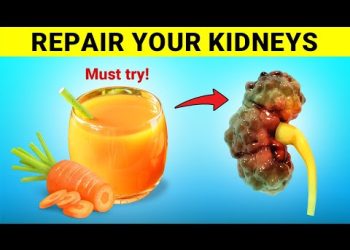Introduction to Shampoo Toxicity
In recent years, concerns have risen about the potential toxins found in everyday beauty products, including shampoo. In a compelling presentation, Barbara O’Neill sheds light on what many believe to be the hidden dangers lurking within this commonplace product. Her insights challenge us to rethink our hair care rituals and emphasize a more conscious approach to grooming.
The Science Behind Hair Loss
Hair loss can result from various factors ranging from genetics to stress and lifestyle choices. However, according to O’Neill, some underlying causes are largely preventable. She suggests that certain chemicals in shampoos contribute to hair thinning and loss, urging consumers to scrutinize product labels carefully.
Understanding Harmful Ingredients
O’Neill specifically highlights ingredients like sulfates, parabens, and synthetic fragrances often found in conventional shampoos. These components are not only linked to irritation but are also suspected to interfere with hormonal functions, potentially leading to long-term health impacts. Her advice is to opt for natural and organic alternatives.
The Impact of Beauty Industry Norms
The beauty industry promotes a plethora of hair products that promise luster and volume. Yet, many of these products might compromise scalp health. O’Neill discusses the industry’s role in perpetuating a cycle of dependency on chemical-laden products that may ultimately harm our hair over time.
Holistic Hair Care Practices
As an advocate for natural health solutions, O’Neill emphasizes holistic approaches to hair care. She suggests simple lifestyle changes that can support hair health, such as a nutritious diet, adequate hydration, and stress management. Natural oils and herbal rinses are also recommended for nourishing the scalp and hair.
Natural Alternatives and DIY Solutions
Replacing mainstream shampoos with natural alternatives is a primary step in O’Neill’s strategy. DIY remedies, such as baking soda washes and apple cider vinegar rinses, are advocated as effective and safe for both hair health and the environment. These options offer an inexpensive and chemical-free way to maintain beautiful hair.
Real-Life Experiences and Anecdotes
During her talk, O’Neill shares anecdotal evidence from individuals who have experienced vast improvements in their hair conditions after abandoning commercial shampoos. These stories serve to inspire others to make informed choices about their hair care products.
The Psychological Aspect of Hair Care
Hair, often considered a reflection of health, plays a significant role in personal identity and confidence. O’Neill touches on the psychological impact of hair loss and the importance of addressing this issue with sensitivity and awareness. By choosing safer alternatives, individuals can feel empowered and more in control of their hair health.
Criticism and Controversy
Naturally, such strong claims about shampoo toxicity invite skepticism and debate. O’Neill’s presentation acknowledges the controversy surrounding her assertions, yet she backs her claims with research and invites individuals to examine the evidence and decide for themselves.
Takeaway and Call to Action
Ultimately, Barbara O’Neill’s message is a call to action – to become informed consumers who prioritize their health over marketing ploys. By making small, conscious changes in our hair care products, we can contribute to better personal wellness and environmental sustainability. Embrace the journey towards toxin-free living and witness the positive transformations it can bring to your hair health.











